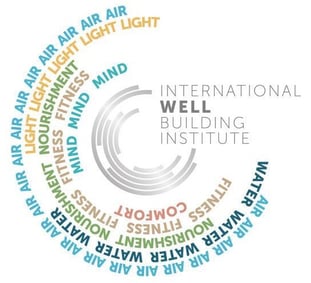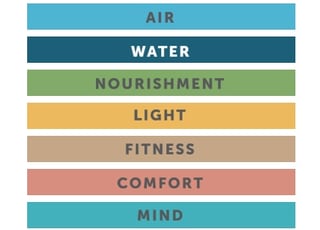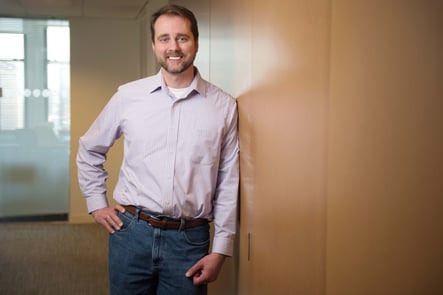With more and more focus on sustainable design, we have a myriad of rating systems to choose from including LEED, Breeam, Green Globes, Passivhaus and now International WELL Building Institute. WELL Buildings Certification is different than the others because instead of focusing mainly on energy, it is a holistic approach to sustainable design. WELL is intended to improve health and well-being of tenants. WELL's value comes from putting people at the center of the design and promotes 83% productivity and 92% positive influence on personal well-being, through an employee survey on CBRE Corporate Headquarters; the CBRE Corporate Headquarters was part of a WELL Building pilot program.

The International WELL Building Institute, started in 2013 following a Clinton Global Initiative commitment by Delos founder Paul Scialla to improve the way people live by developing spaces that enhance occupant health and quality of life by sharing WELL globally.[1]

Integrating elements of Health and Wellness into policy and design is a trend that is exploding in corporate interiors, especially for tech companies. The WELL Building Standard provides a framework of features based on Air, Water, Nourishment, Light, Fitness, Comfort and Mind that address the impacts our buildings and interior spaces have on our health and well-being.

Senior Portfolio Manager, Andrew Zumwalt-Hathaway, LEED AP-BD+C, WELL AP recently went through the process of becoming a WELL Accredited Professional.
"I pursued WELL Accreditation as a design professional because I want to help developers and architects reduce the impacts the built environment has on both the sustainability of the environment and the health of building occupants. Since I earned my LEED Accreditation fifteen years ago, I have seen consulting services associated with LEED Program Management, Energy Modeling and Commissioning grow exponentially. Indeed, much of the work of the Vidaris/LPI Green, Energy and Commissioning groups supports the market demand for LEED Certification. If the demand for WELL Certification mirrors LEED even marginally, Vidaris is uniquely qualified and positioned to build upon its existing expertise and help our clients create environments that improve occupant health, minimize sick days, reduce turnover and maximize productivity"
-Andy Zumwalt-Hathaway










